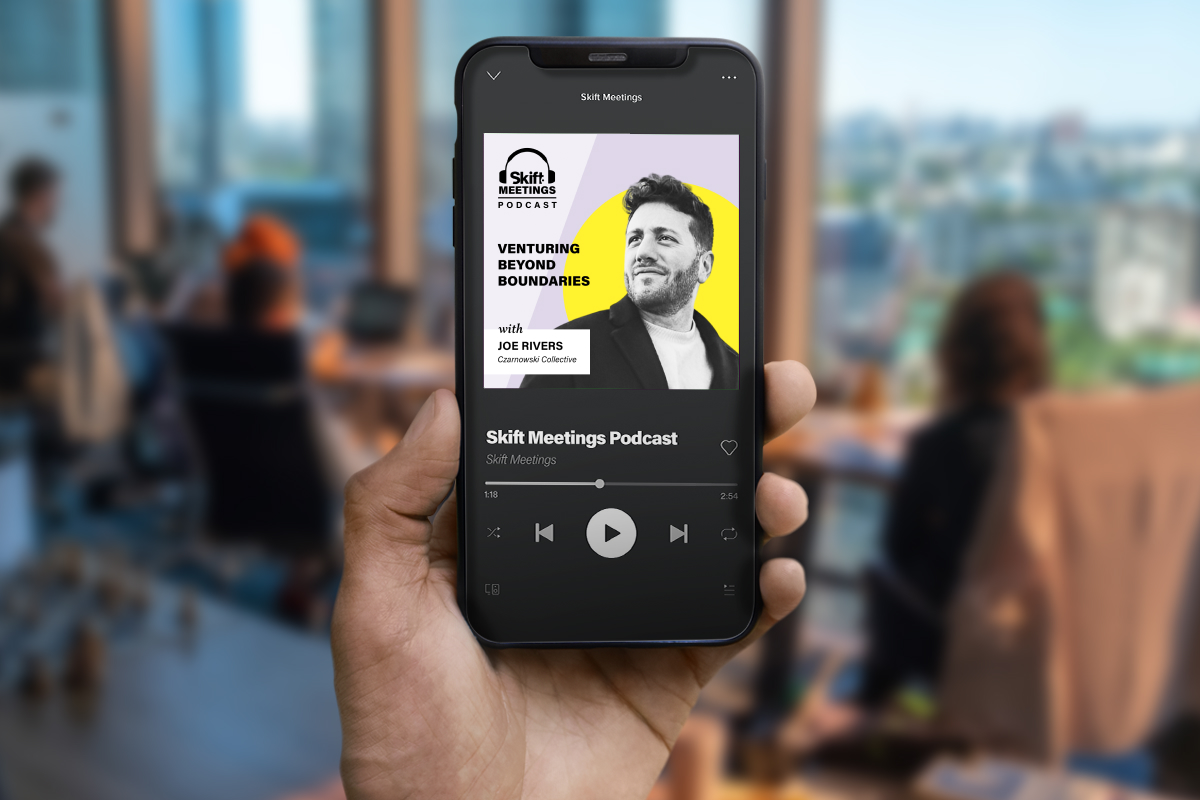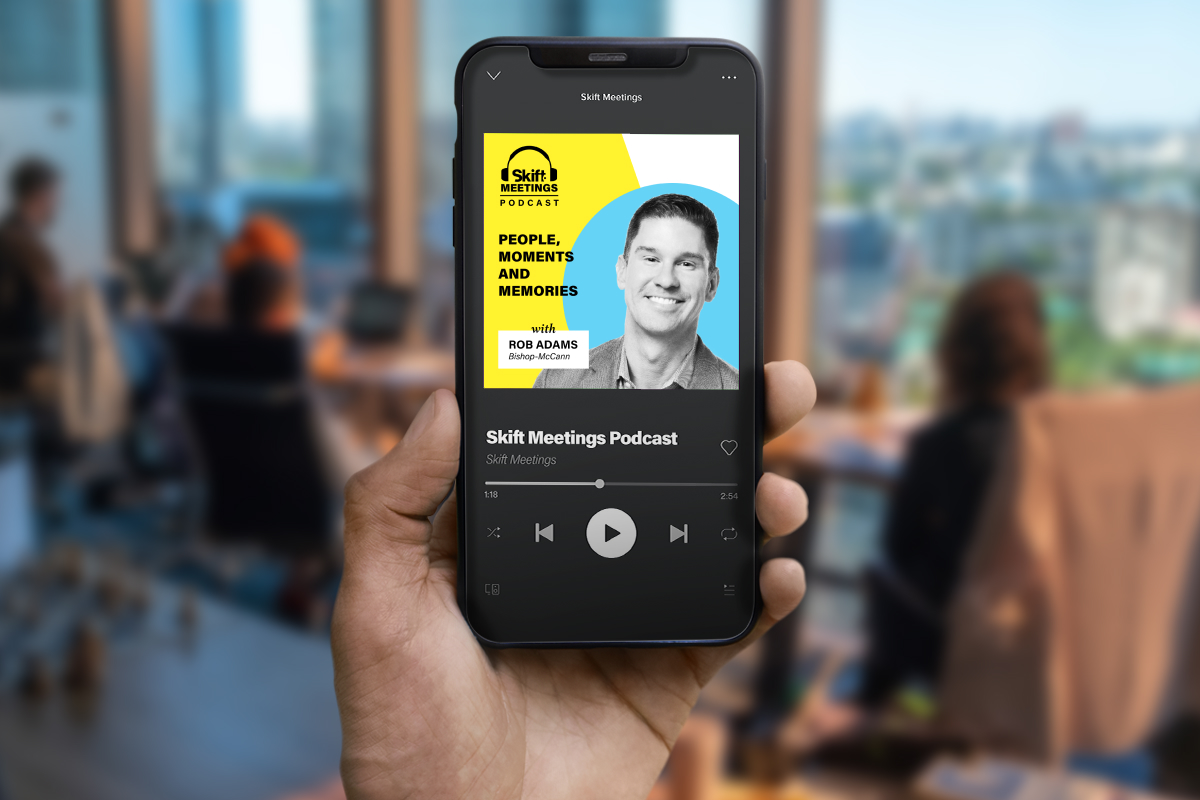Skift Take
Jaimé Bennett leads PCMA's ambitious growth strategy in Europe with her distinctive style of transparent and genuine leadership. She is dedicated to organizing impactful events that foster safe and inclusive environments, fearlessly addressing significant industry challenges such as talent and consolidation.
Jaimé Bennett is the managing director of EMEA at PCMA and managing director of the Event Marketing Association (EMA UK). She has been active in the business events sector for 18 years and has held multiple roles both on the planner and supplier side of the industry. She led the team to a record-breaking PCMA Convening EMEA event in Copenhagen with more than 550 attendees in September and will lead the association’s new labs starting in London in November.
Subscribe to the Skift Meetings Podcast: Apple Podcasts | Spotify | Overcast | Pocket Casts | Google Podcasts | Amazon | RSS
Starting with Why
Bennett is an advocate for events creating a positive impact on society beyond financial outcomes. However, this requires that everyone involved in the event understands its purpose and objective. In other words, starting the “why,” is crucial. This means identifying the problem or need the event is addressing and who it is serving. It also means it is essential to define what success looks like at the end of the event. To do this, you need to determine the desired outcomes and measure against this.
Safe and Welcoming Environments
To create a successful event, Bennett believes creating a safe environment is vital. This is where participants feel a sense of belonging, can contribute, and are encouraged to challenge themselves. This includes fostering an atmosphere where individuals can express themselves freely without fear of judgment or negative feedback. The same applies to the event team, who should be passionate, committed, and willing to experiment and grow. By creating a supportive and inclusive environment, events can have a transformative impact.
PCMA’s EMEA Strategy
PCMA’s investment in the EMEA region focuses on a “Europe for Europe, EMEA for EMEA” approach. The annual event Convening EMEA aims to foster a multi-generational ecosystem. Earlier this year, PCMA acquired the Event Marketing Association in the UK to strengthen the region further. This decentralized global strategy facilitated the running of three Convening EMEA events. This flagship event for the region is now a global event held in Europe, with 45 countries attending this year.
Bennett is exploring locations for 2025 locations, but the main event is likely to remain in Europe. PCMA’s approach in the Middle East and Africa differs based on the needs and value it can provide in each region. It is exploring micro events in Africa and the Middle East and has already held virtual events with suppliers, universities, and institutes to engage future talent. Student membership of PCMA is free, regardless of location. In five years, Bennett anticipates Africa having a quarterly event with a smaller, curated group of international attendees. The Middle East may have one annual event. Ultimately, PCMA’s goal is to create intentional, authentic platforms tailored to the needs of its current and future communities.
Consolidation Needed
Looking back, Bennett sees a business events industry pre-Covid pandemic with too many options in terms of events, groupings, associations, and media outlets. In her view, this is not sustainable, and instead, we should look for value in teams, organizations, events, and more. The aim is not just to consolidate but to create convergence and facilitate magic.
PCMA now manages the two associations for corporate planners that it acquired. Its management of CEMA and EMA provides member benefits and value while still respecting their identities. Corporate event planners and association planners can continue their Chatham House Rule discussions without outside interference. Additionally, the two associations can collaborate strategically, while multi-sector collaboration can happen externally. The connection between CEMA and EMA makes sense, with members holding similar job roles and likely wanting similar content. However, forcing collaboration is not an option.
Leadership Must Be Transparent and Authentic
Bennett’s advice to industry newcomers is to work on yourself and know yourself. Know your strengths and weaknesses and where you feel happiest. By understanding yourself, you can understand and collaborate with others better, like mentors, mentees, and groups from different cultures. Be yourself because everyone else is taken. Take good from others and be yourself to attract mentors, mentees, and opportunities. She believes this transparent and authentic way of working is a form of leadership regardless of seniority ranking. This approach has helped her to be more aligned with her role and better collaborate with those she works with.
Building a Multi-Generational Ecosystem
Bennett sees Talent as the most significant challenge facing business events. Our industry may not be seen as attractive or professional compared to other roles. To build a successful multi-generational ecosystem, we need fresh talent, perspectives, and ideas; thus, talent is the biggest challenge we face. To advance, we must find solutions to this problem.





